#led dance
Explore tagged Tumblr posts
Text

Stage on Fire 🔥 with BMW Group
0 notes
Text
youtube
Ландшафтные светильники Камыш теплого белого свечения IP65
#подсветка#youtube#led#lighting#led dance#ландшафтные светильники#ландшафтный дизайн#камыш#светильник#Youtube
1 note
·
View note
Text
Đạo cụ Gương/Led/Lông cho ace lên đồ!
- Nón gương, cầu gương, mũ gương, phớt gương, mặt nạ gương...
- Quạt led, nón led, cầu led, gậy led, mũ phớt led, ô led, vòng led...
- Mũ lông, quạt lông, cánh lông....
- Vương miện, ốp đầu, gương đính trang phục...
- Bằng Tốt nghiệp chụp kỷ yếu
----
ACE có nhu cầu inbox hoặc zalo: 0989322113
Tks ad duyệt bài!












1 note
·
View note
Text
patience being tested. being forced by a bizarre unfortunate situation to adhere to university requirement technicality by taking this simple basic elementary "introduction to environmental history" class.
this class is from facilitators/program which do, like, "history of the American frontier" or "history of fishing and hunting" and still basically subscribe to that old-school twentieth-century idealization and celebration of characters like Teddy Roosevelt and reverence for a mythical arc-of-history-bent-towards-justice narrative of the often-clumsy but ultimately-benevolent US federal government and its mission to "save nature" through the miracle of "sustained yield," while heroic federal land management agencies and "heritage" institutions lead to way, staffed by exceptional individuals (appeals to nostalgia for the frontier and an imagined landscape of the American West; ego-stroking appeals to flattering self-image that center the environmentalist or academic). where they invoke, y'know, ideas like "ecology is important because don't you enjoy cross-country skiing in The Woods with your niece and nephew? don't you like hunting and fishing?" which makes it feel like a time capsule of appeals and discourses from the 1970s. and it invokes concept of "untouched wilderness" (while eliding scale of historical Indigenous environmental relationships and current ongoing colonial violence/extractivism). but just ever-so-slightly updated with a little bit of chic twenty-first-century flair like a superficial land acknowledgement or a reference to "labor histories" or "history from below," which is extra aggravating when the old ideologies/institutions are still in power but they're muddying the water and diluting the language/frameworks (it's been strange, watching words like "multispecies" and "Anthropocene" over the years slowly but surely show-up on the posters, fliers, course descriptions, by now even appearing adjacent to the agri-business and resource extraction feeder programs, like a recuperation or appropriation.) even from a humanities angle, it's still, they're talking at me like "You probably didn't know this, but environmental history is actually pretty entangled with political and social events. In fact, we can synthesize sources and glean environmental info from wacky places like workers' rolls in factories, ship's logs, and poetry from the era." and i'm nodding like YEP.
the first homework assignment is respond to this: "Define and describe 'the Anthropocene'. Do you think 'the Anthropocene' is a useful concept? Why or why not?" Respond in 300 words.
so for fun, right now in class, going to see how fast i can pull up discussion of Anthropocene-as-concept solely from my old posts on this microblogging site.
---
ok, found some
---
I think that the danger in any universal narrative or epoch or principle is exactly that it can itself become a colonizing force. [...] I’m suspicious of the Anthropocene as concept for the very reason that it subsumes so many peoples, nations, histories, geographies, political orders. For that reason, I think ideas like the Anthropocene can be a useful short-hand for a cluster of tangible things going on with the Earth at the moment, but we have to be very careful about how fluid and dynamic ideas become concretized into hegemonic principles in the hands of researchers, policymakers, and politicians. There’s so much diversity in histories and experiences and environmental realities even between relatively linked geographies here in Canada [...]. Imagine what happens when we try to do that on a global scale - and a lot of euro-western Anthropocene, climate change and resilience research risks doing that - eliding local specificities and appropriating knowledge to serve a broader euro-western narrative without attending to the inherent colonial and imperial realities of science and policy processes, or even attending to the ways that colonial capitalist expansion has created these environmental crises to begin with. While we, as a collective humanity, are struggling with the realities of the Anthropocene, it is dangerous to erase the specific histories, power-relations, political orders that created the crisis to begin with. So, I’m glad that a robust critique of the Anthropocene as a concept is emerging.
Text by: Words of Zoe Todd, as interviewed and transcribed by Caroline Picard. “The Future is Elastic (But it Depends): An Interview with Zoe Todd.” 23 August 2016.
---
---
---
The Great Acceleration is the latest in a series of human-driven planetary changes that constitute what a rising chorus of scientists, social scientists, and humanists have labeled the Anthropocene - a new Age of Humans. [...] But what the Anthropocene label masks, and what the litany of graphs documenting the Great Acceleration hide, is a history of racial oppression and violence, along with wealth inequality, that has built and sustained engines of economic growth and consumption over the last four centuries. [...] The plantation, Sidney Mintz long ago observed, was a “synthesis of field and factory,” an agro-industrial system of enterprise [...]. Plantation legacies, along with accompanying strategies of survival and resistance, dwell in the racialized geographies of the United States’ and Brazil’s prison systems. They surface in the inequitable toxic burdens experienced by impoverished communities of color in places like Cancer Alley, an industrial corridor of petrochemical plants running along the Mississippi River from New Orleans to Baton Rouge, where cotton was once king. And they appear in patterns of foreign direct investment and debt servitude that structure many land deals in the Caribbean, Brazil, and sub-Saharan Africa [...]. [C]limatologists and global change scientists from the University of London, propose instead 1610 as a date for the golden spike of the Anthropocene. The date marked a detectable global dip in carbon dioxide concentrations, precipitated, they argue, by the death of nearly 50 million indigenous human inhabitants [...]. The degradation of soils in the tobacco and cotton-growing regions in the American South, or in the sugarcane growing fields of many Caribbean islands, for example, was a consequence of an economic and social system that inflicted violence upon the land and the people enslaved to work it. Such violent histories are not so readily evident in genealogies that date the Anthropocene’s emergence to the Neolithic Revolution 12,000 years ago, the onset of Europe’s industrial revolution circa 1800, or the Trinity nuclear test of 1945. Sugarcane plantations were already prevalent throughout the Mediterranean basin during the late middle ages. But it was during the early modern era, and specifically in the Caribbean, where the intersection of emerging proto-capitalist economic models based on migratory forced labor (first indentured servitude, and later slavery), intensive land usage, globalized commerce, and colonial regimes sustained on the basis of relentless racialized violence, gave rise to the transformative models of plantations that reshaped the lives and livelihoods of human and non-human beings on a planetary scale. [...] We might, following the lead of science studies scholar Donna Haraway and anthropologist Anna Tsing, more aptly designate this era the Plantationocene. [...] It is also an invitation to see, in the words of geographer Laura Pulido, “the Anthropocene as a racial process,” one that has and will continue to produce “racially uneven vulnerability and death." [...] And how have such material transformations sustained global flows of knowledge and capital that continue to reproduce the plantation in enduring ways?
Text by: Sophie Sapp Moore, Monique Allewaert, Pablo F. Gomez, and Gregg Mitman. "Plantation Legacies." Edge Effects. 22 January 2019. Updated 15 May 2021. [Bold emphasis added by me.]
---
---
---
Geologists and other scientists will fight over [the definition of the beginning start-date of the Anthropocene] in scientific language, seeking traces of carbon dioxide that index the worst offenses of European empire which rent and violated the flesh, bodies, and governance structures of Indigenous and other sovereign peoples in the name of gold, lumber, trade, land, and power. [...] The stories we tell about the origins of the Anthropocene implicate how we understand the relations we have with our surrounds. In other words, the naming of the Anthropocene epoch and its start date have implications not just for how we understand the world, but this understanding will have material consequences, consequences that affect body and land.
Text by: Heather Davis and Zoe Todd. On the Importance of a Date, or Decolonizing the Anthropocene. ACME An International Journal for Critical Geographies. December 2017. [Bold emphasis added by me.]
---
---
---
From Aime and Suzanne Cesaire, C. L. R. James, Claudia Jones, Eduoard Glissant, through Sylvia Wynter, Christina Sharpe, and so many others, critical anticolonial and race theory has been written from the specific histories that marked the Black Atlantic. [...] Glissant also reminds us, secondly, of how cunning the absorptive powers of [...] liberal capitalism are - how quickly specific relations are remade as relations-erasing universal abstractions. [...] This absorptive, relations-erasing universalism is especially apparent in some contemporary discourses of […] liberalism and climate collapse - what some call the Anthropocene - especially those that anchor the crisis in a general Human calamity which, as Sylvia Wynter has noted, is merely the name of an overdetermined and specific [White] European man. […] [T]he condition of creating this new common European world was the destruction of a multitude of existing black and brown worlds. The tsunami of colonialism was not seen as affecting humanity, but [...] these specific people. They were specific - what happened to them may have been necessary, regrettable, intentional, accidental - but it is always them. It is only when these ancestral histories became present for some, for those who had long benefitted from the dispossession [...], that suddenly the problem is all of us, as human catastrophe.
Text by: Elizabeth Povinelli. “The Ancestral Present of Oceanic Illusions: Connected and Differentiated in Late Toxic Liberalism.” e-flux Journal Issue #112. October 2020.
---
The narrative arc [of White "liberal humanism"] [...] is often told as a kind of European coming-of-age story. […] The Anthropocene discourse follows the same coming-of-age [...] script, searching for a material origin story that would explain the newly identified trajectory of the Anthropos […]. Sylvia Wynter, W.E.B. DuBois, and Achille Mbembe all showed how that genealogy of [White subjecthood] was [...] articulated through sixteenth- through nineteenth-century [historiographies and discourses] in the context of colonialism, [...] as well as forming the material praxis of their rearrangement (through mining, ecological rearrangements and extractions, and forms of geologic displacements such as plantations, dams, fertilizers, crops, and introduction of “alien” animals). […] As Wynter (2000) commented, “The degradation of concrete humans, that was/is the price of empire, of the kind of [Eurocentric epistemology] that underlies it” (154).
Text by: Kathryn Yusoff. “The Inhumanities.” Annals of the American Association of Geographers, Volume 11, Issue 3. November 2020.
---
---
---
As Yarimar Bonilla suggests in regard to post-Irma-and-Maria Puerto Rico, “vulnerability is not simply a product of natural conditions; it is a political state and a colonial condition.” Many in the Caribbean therefore speak about the coloniality of disaster, and the unnaturalness of these “natural” disasters [...]. Others describe this temporality by shifting [...] toward an idea of the Plantationocene [...]. As Moore and her colleagues write, “Plantation worlds, both past and present, offer a powerful reminder that environmental problems cannot be decoupled from histories of colonialism, capitalism, and racism that have made some human beings more vulnerable [...].” [W]e see that contemporary uneven socioecologies associated with the rise of the industrial world ["the Anthropocene"] are based [...] also on the racialized denial and foreshortening of life for the sacrificial majority of black, brown, and Indigenous people and their relegation to the “sacrifice zones” of extractive industry. [...] [A]ny appropriate response to the contemporary climate emergency must first appreciate its foundations in the past history of the violent, coercive, transatlantic system of plantation slavery; in the present global uneven development, antiblackness, and border regimes that shape human vulnerability [...] that continues to influence who has access to resources, safety, and preferable ecologies [...] and who will be relegated to the “plantation archipelagoes” (as Sylvia Wynter called them) [...].
Text by: Mimi Sheller. “Thinking Beyond Coloniality: Toward Radical Caribbean Futures.” Small Axe (2021), 25 (2 (65)), pages 169-170. Published 1 July 2021. [Bold emphasis added by me.]
---
---
---
Indigenous genocide and removal from land and enslavement are prerequisites for power becoming operationalized in premodernity [...]; it was/is a means to operationalize extraction (therefore race should be considered as foundational rather than as periphery to the production of those structures and of global space). [...] Wynter suggests that we […] consider 1452 as the beginning of the New World, as African slaves are put to work on the first plantations on the Portuguese island of Madeira, initiating the “sugar-slave” complex - a massive replantation of ecologies and forced relocation of people […]. Wynter argues that the invention of the figure of Man in 1492 as the Portuguese [and Spanish] travel to the Americas instigates at the same time “a refiguring of humanness” in the idea of race. [...] The natal moment of the 1800 Industrial Revolution, […] [apparently] locates Anthropocene origination in […] the "new" metabolisms of technology and matter enabled by the combination of fossil fuels, new engines, and the world as market. […] The racialization of epistemologies of life and nonlife is important to note here […]. While [this industrialization in the nineteenth century] […] undoubtedly transformed the atmosphere with […] coal, the creation of another kind of weather had already established its salient forms in the mine and on the plantation. Paying attention to the prehistory of capital and its bodily labor, both within coal cultures and on plantations that literally put “sugar in the bowl” (as Nina Simone sings) […]. The new modes of material accumulation and production in the Industrial Revolution are relational to and dependent on their preproductive forms in slavery […]. In 1833, Parliament finally abolished slavery in the British Caribbean, and the taxpayer payout of £20 million in “compensation” [paid by the government to slave owners for their lost "property"] built the material, geophysical (railways, mines, factories), and imperial infrastructures of Britain and its colonial enterprises and empire. [...] A significant proportion of funds were invested in the railway system connecting London and Birmingham (home of cotton production and […] manufacturing for plantations), Cambridge and Oxford, and Wales and the Midlands (for coal). Insurance companies flourished [...]. The slave-sugar-coal nexus both substantially enriched Britain and made it possible for it to transition into a colonial industrialized power […]. The slave trade […] fashioned the economic conditions (and institutions, such as the insurance and finance industries) for industrialization.
Text by: Kathryn Yusoff. "White Utopia/Black Inferno: Life on a Geologic Spike". e-flux Journal Issue #97. February 2019. [Bold emphasis added by me.]
#sorry for being mean#instructor makes podcasts about cowboys HELP ME#and he recently won a New Business award for his startup magazine covering Democrat party politics in local area HELP#so hes constantly performing this like dance between new hip beerfest winebar coolness and oldfashioned masculinity#but hes in charge of the certificate program so i have to just shut up and keep my head down for approximately one year#his email address is almost identical to mine and invokes enviro history terms but i made mine long before when i was ten years old#so i could log in to fieldherpforum dot com to talk about enviro history of distribution range changes in local reptiles and amphibians#sir if you read my blog then i apologize ive had a long year#and i cant do anything to escape i am disabled i am constantly sick im working fulltime i have NO family i have NO resources#i took all of this schools graduate level enviro history courses and seminars years ago and ran the geography and enviro hist club#but then left in final semester because sudden hospitalization and crippled and disabled which led to homelessness#which means that as far as any profession or school is concerned im nobody im a retail employee#i was doing conference paper revisions while sleeping on concrete vomiting walking around on my cane to find outdoor wifi#and im not kidding the MONTH i got back into a house and was like ok going back to finish the semester the school had#put my whole degree program and department in moratorium from lack of funding#and so required starting some stuff from scratch and now feel like a hostage with debt or worsening health that could pounce any moment#to even get back in current program i was working sixteen hours a day to pay old library fines and had to delicately back out of workplace#where manager was straight up violently physically abusive to her vulnerable employees and threatened retaliation#like an emotional torturer the likes of which i thought existed only in cartoons#and the week i filed for student aid a massive storm had knocked out electricity for days and i was clearing fallen tree debris#and then sitting in the dark in my room between job shifts no music no phone no food with my fingers crossed and i consider it a miracle#sorry dont mean to dramatize or draw attention to myself#so actually im happy you and i are alive
134 notes
·
View notes
Text
WHY DOES HE FLOP HIS ARMS ABOUT LIKE THAT ??😭😭
he’s so fucking weird oh i love him.
#real footage of me trying to dance#i love my awkward bf sm#also i completely fw this i promise i’m not being mean#twink#jimmy page#led zeppelin#70s#70s rock#70s music
135 notes
·
View notes
Text

my brainrot about these two can be measured in liters
#dreamworks trolls#trolls#ex bandmates#trolls oc#hed#les#my art#this drawing is very old already but i really wanted to write a oneshot to go with it#because i have story in my mind that led to this particular moment#but ALAS. no motivation for writing#lets just say he had a shit class meeting about their end of elementary school prom where he got singled out and everyone collectively...#...decided that he can't participate in the traditional dance because he's too short (unless. an asshole classmate proposed. he finds...#..a dancing partner in like the 2nd grade. and the class teacher looked thoughtful instead of reprimanding that student.)#basically no one not even his friends stood up for him and it made him feel like a class nuisance they were trying to sweep under the rug#living in vibe city made him such an outcast in general. he did a lot of crying over wanting to be a funk troll and fit in :((#and of course les would blame himself for every one of his problems#ughuguguhugh#i have shed physical tears thinking about these two idiots who can't let go of resentment for each other but also love each other so so muc#fuck i'm crying again#someone put me out of my misery#hedley#leslie
345 notes
·
View notes
Text
"rhaenys could have ended the war by dracarysing all the greens right there" yes because a distant relation to the throne deciding to barbecue an anointed and publicly positively hailed king and his entire family who is well loved within the city and in multiple other parts of the country for the sake of the succession of a far-away princess no one was ever on board with who hasn't been seen by the populace in literal years, her psycho husband, her three obvious bastards, and two toddlers from the psycho husband would go over super well with westeros and especially in king's landing where scores of the still-cheering population were killed for no reason by that same dragon who would do the barbecuing, because when targaryens act unilaterally without thinking of how the people would react there's never any problem, which is why the storming of the dragonpit and robert's rebellion were actually just collective delusions dreamed up by readers who hate rhaenyra and not key parts of the story and house targaryen's history that directly contributed to their demise and are intrinsic to the plot
truly team black stans are made up of only the most genius and media literate amongst us
#personal#house of the dragon#anti team black#i mean i guess??#like the crowd was cheering for aegon HARD#and they were always on board with aegon#and the hightowers are a powerful house with a lot of allies#and alicent and helaena specifically were well loved by the people in king's landing and the realm at large#and none of them ever liked rhaenyra or daemon who again have been MIA for basically a decade already#and again targaryens overreaching their power and not taking the people into account#is the reason why their house fell into oblivion and now rests entirely on a FIFTEEN YEAR OLD GIRL WHO IS THE ONLY ONE LEFT#if she roasted the dais the mob wouldn't have even let her leave they'd have killed her and meleys both in a heartbeat#storming of the dragonpit but a couple months earlier#the thing to remember is that i think a lot of team black stans are just kinda stupid#and do not care about the story at all or the actual intricacies of the world and its politics that is so important to the dance#(remember the rumors of rhaenyra mistreating helaena and alicent literally led to rhaenyra's death)#(because it led to the mobs and the storming of the dragonpit and the death of joffrey and her being driven out)#(and thus having to go to dragonstone where sunfyre got a little meal out of the whole debacle good for him)#(along with all of her ten million other shitty political decisions)#how do you profess to be pro-targaryen without even knowing targaryen history and where they erred and how that ended them#like *i* like the targaryens you guys have heard me talk about the conquerors all the livelong day#but i am also smart and i understand the world george created and the concept of repercussions#anyway yeah i am Annoyed at that new daemon clip (wow what a shock something annoyed me and had daemon in it)#(my least favorite character who could have foreseen this)
226 notes
·
View notes
Text
i've seen figure skater sanji and hockey player zoro before. idk if its been explored but i'd love to put it out there:
hockey player sanji (specifically goalie bc he desperately wants to avoid being checked) and then pairs skater zoro.
pairs skater zoro's long time partner has been nami. though many people ship them together a Lot, they just know each other super well. Well enough to try dating and both of them realized they don't swing that way. in fact, it makes them a really good team. they fought long and hard to claim top spots in competitions because they portray a chemistry that's separate from the rest. plus zoro can carry nami like she weighs fucking nothing. so their lifts are so much more dynamic. they even have a whole next to impossible combination that they're trying to get the ISU to name after them officially.
sanji plays for the East Blue Straw Hats in the Grand Line Hockey League – a formidable rookie group that took down lots of big names in the preseason. they want to make it all the way to the postseason playoff finals but always seem to fall short. but theyre so determined. they reignited a lot of old sparks that were no longer there for old fans and brought in new and curious fans. sanji is the starter goalie and a damn good one at that. it makes sense bc goalies are often doing splits on the ice just to make a save. he's perfected the technique that utilizes just his legs to make saves that make the crowd go fuckin insane.
we have the usual "i booked the rink to practice before you did" trope but a little more spice. in actuality, sanji loves watching pairs skating competitions. his favorite pair rn is franky and robin (mostly for robin). and he adamantly does not want to admit to anyone that he watches zoro and nami's routines much more frequently. (and if anyone asks, he always says its bc of nami. its never just bc of nami.) and zoro's besties with luffy so he always watches their matches even if he barely understands the rules. and he definitely does not stare at a certain blond starter goalie most of the match thats fucking ridiculous
one day zoro and sanji are invited to do one of those comparison videos between hockey players and figure skaters. both get to laugh at the other even Attempting to do their sport. zoro frankly looks ridiculous in all of sanji's usual goalie get-up. and sanji couldn't land an euler to save his life. the video producer suggests they try a simple pairs skating routine. sanji is like "oh i couldn't do that–hEY WHAT THE FUCK MOSSHEAD PUT ME DOWN" because zoro lifted sanji and had him sat on his shoulder like it was normal.
zoro smirks, "you might be lighter than nami, actually. wanna be my new partner?"
sanji knees him in the stomach before skating away while blushing so hard he could melt the ice beneath him.
#listen#both figure skating (most especially pairs skating and ice dancing) AND hockey were my hyperfixations at one point#and zoro? built like a pairs skating man#sanji? has the ass of a hockey player#iT MAKES SENSE TO ME !#but also the dichotomy of zoro doing a graceful sport and sanji in a fast paced brutal game#idk man im too tired to psychoanalyze why i think pairs skating actually works well with zoro's philosophy on strength and balance#and sanji's phobia of being checked tied to many little league games that led him to become a formidable goalie#i COULD GO ON#But i will sleep instead#one piece#sanji#roronoa zoro#zosan#niki's log: op#niki's fics: checks and balances#dO YOU GET THE PUN IN THE TITLE GOD IM SO ANNOYING !!!!!#lowkey my contribution to zosan week even if it might not fit any promprs#i just wanna feel included
427 notes
·
View notes
Text
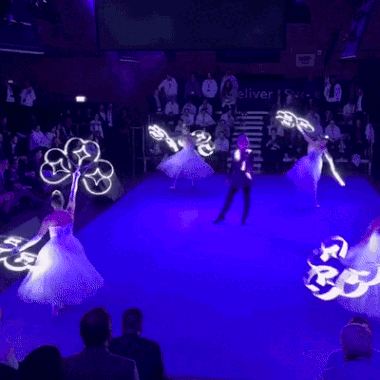
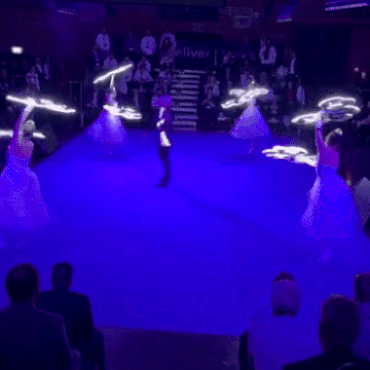

❄️ ~ Sugarplum Fairies ~ ❄️ (arabesqueshow)
(Credit if you use pls!) (ko-fi)
#stim#leds#lights#irl people#dancing stim#christmas stim#sugar plum fairy#sugar plum fairies#neon#flow arts#glow#glowing#glowcore#glowwave#glow stim#glowing effect#glowy#glow aesthetic#LEDs#led lights#Neon lights#neon glow#blinking lights#slight flashing#dance stim#fairy aesthetic
58 notes
·
View notes
Text




STIM - LED Coats
Link back to this post if used.
#stim#stimboard#fashion#clothing#clothes#movement#irl people#glow#light#lights#robe#magic#magical#glowing#led#fur#material#fabric#texture#dance#dancing#rainbow#black#white#QUEUE
111 notes
·
View notes
Text
something about how every time a targ tries to enact real genuine reform to westeros/the dynasty as a whole everything crumples in on itself. viserys naming rhaenyra heir leading to the dance, ensuring that no woman will ever inherit the throne in her own right out of fear of it happening again. daeron 2 establishing a final peace with dorne, (ending the cycle of attempted war of conquest to tense peace to attempted war of conquest) but the inclusion of dornishmen in court being a catalyst for the blackfyre rebellions, igniting a new cycle of attempted conquest every generation or so. egg genuinely being a ruler for the people with the best intentions and then accidently causing the tragedy at summerhall (not even mentioning the fact that daeron 2 literally built summerhall...), his attempts to end the incest foiled by his own children who romanticize the old targs. bc no matter how much they want to change for the better, they are still targaryens of old valyria. they can't help but look back.
#anyway: yes rhaena was declared aegon 3's heir but only bc there was literally no one left. as soon as he had sons she out of the picture.#and when baelor died viserys 2 inherited over daena explicitly bc of memories of the dance#and daeron 2's inclusion of a lot of dornish ppl at court was deeply upsetting to a lot of westerosi lords and led to a lot of people sidin#with daemon blackfyre.#this is why dany is so important this is why she is different! she will break the wheel she will change the world for the better! the last#legacy of old valyria will be a fourteen year old girl who will use her dragons (reborn from her grief) to liberate the world from slavery#which the valyrian freehold built their empire on.#asoiaf#house targaryen#fire and blood#hotd#valyrianscrolls
52 notes
·
View notes
Text
n the world was never the same again… happy 4 years to all who celebrate
#EVERGLOW FOREVER LETS GO‼️ hashtag herstory#world changing career ending etc#n then yuehua abandoned them for their flop ass boy group help.#the way sihyeon led that dance break u better slay girl 🙂↔️🚬#.txt
62 notes
·
View notes
Text




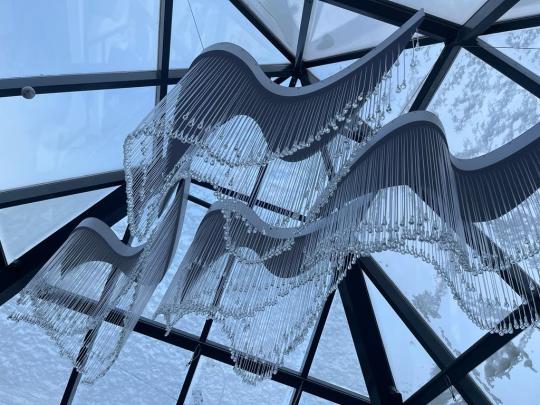
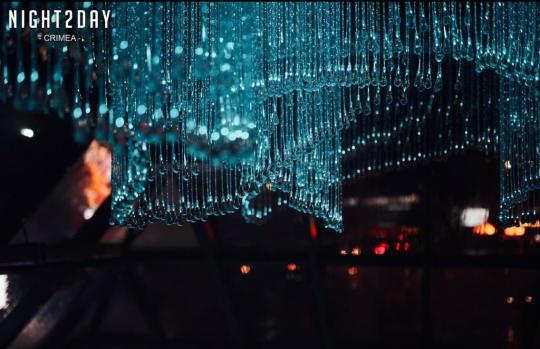
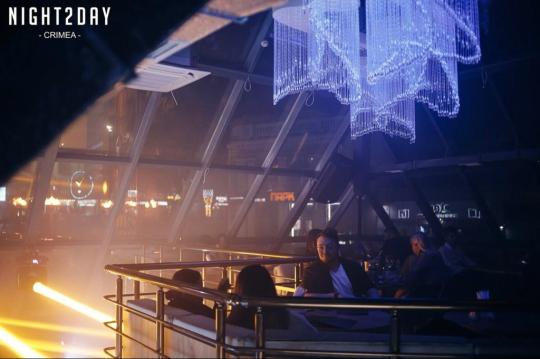


Фотографии нашей световой инсталляции из оптоволокна бокового свечения с насечками с Симферополе
Fiber optic lighting by LED DANCE
#подсветка#led#led dance#lighting#rgb#optic fiber lighting#light#optic#fiber#световая инсталляция#оптоволконо#бокового свечения#с насечками
1 note
·
View note
Text
the thing is: jaehaerys didn't deny daenerys/rhaenys claims (the great council was a scam, he was endorsing viserys) to the throne for the "good of the realm" or only because he thought women can't rule/he didn't want corlys velaryon behind the power. he did it because if a women came upon the throne before her male brother/uncle, he would bring scrutiny over his usurpation of the far better claimant aerea.
#aerea was the oldest child of aenys oldest male child#and the oldest child of aenys' oldest kid in general (rhaena)#aegon the uncrowned#rhaena the black bride#rhaena the queen in the east#rhaena targaryen#aerea was also maegor's heir#which means nothing but#male uncle before girl niece is very much a precedent set by jaehaerys#“oh but aerea went to the valyrian ruins” she might not have if she was a QUEEN and rhaena was her regent#jaehaerys was ALSO a child like... it wasn't an age reason#king jaehaerys#jaehaerys led to the dance it's actually his and viserys i fault#like... jaehaerys your only claim is a cock#jaehaerys targaryen#viserys i targaryen#rhaenys targaryen#rhaenys the queen who never was#daenerys targaryen (daughter of alysanne)#alysanne targaryen#(could be so much better without jaehaerys existing)#maegor targaryen#rhaenyra targaryen#hotd#house of the dragon#fire and blood#asoiaf#aerea targaryen#aerea or rhaella who knows even#rhaella targaryen
90 notes
·
View notes
Text
Not only should I have seen myself falling into the Eddie Diaz trap, the Ryan Guzman effect hitting me just makes so much sense. He's so very pretty. He's just a goofy guy. He's in a pair of dance movies. He's in a baseball movie. That's like most of my niche interests right there. Media that just fits perfectly in my life, all with him
#ryan guzman#911#everybody wants some#step up#love every little dance video we get. seriously finding the step ups has reinvigorated that love for dance i had as a teen#and i mean ews has just become a love outside of ryan but thats how it started#this is like. the equal and opposite of that shanks kick i had last year where like. i watched saving hope and that led to sg1 which became#a massive thing. then i realized he was the guy behind two other side characters I'd adored on other shows and it just. made so much sense#shoulda known#my brain works in mysterious ways#I'm fine i swear#just rambling it's fine
25 notes
·
View notes
Text




one of my favourite silly little twenty seconds of led zeppelin ♡
#jonesy just dancing out of the frame gets me everytime#AND JIMMY PULLING IN ROBERTS WAIST#i post about this part of earl’s court a lot i am aware#i will just simply never be over it#who knew such a heavy group could be so silly?#led zeppelin#70s#70s rock#70s music#rock#classic rock#john paul jones#robert plant#jimmy page#rockstars
33 notes
·
View notes